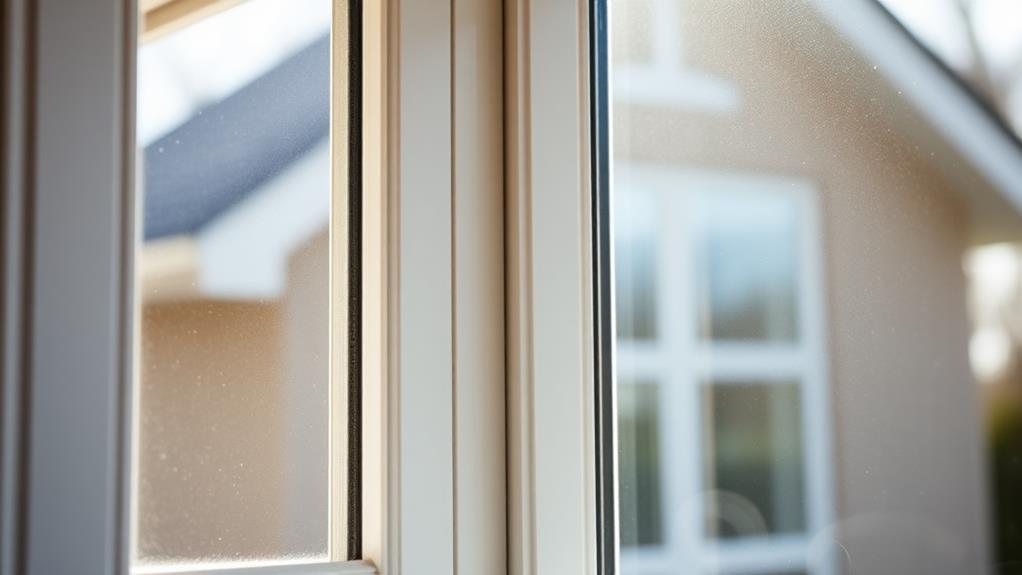When deciding between double-pane and triple-pane windows, consider your climate, budget, and energy-saving goals. Triple-pane windows offer superior insulation and noise reduction, with a lower U-factor (0.15-0.22) compared to double-pane (0.25-0.30). However, they're 10-15% more expensive and may not be cost-effective in moderate climates. Double-pane windows still provide significant energy efficiency improvements over single-pane options. Your choice should factor in long-term savings, comfort, and potential home value increase. For colder regions, triple-pane windows excel at heat retention, while double-pane may suffice in milder areas. To make the best decision for your home, you'll want to explore these factors in greater depth.
Understanding Window Pane Technology
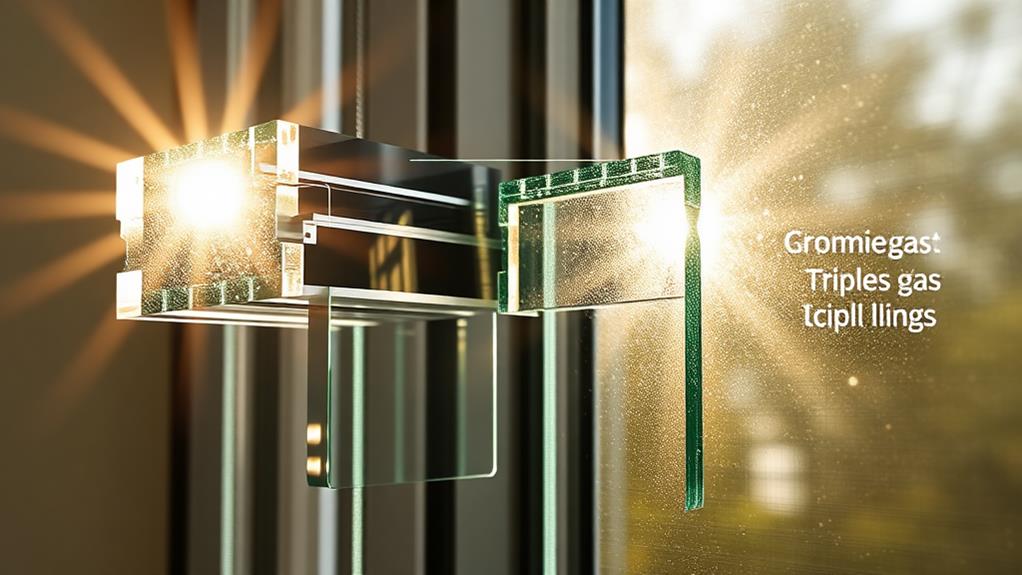
Window pane technology's evolution has revolutionized home insulation and energy efficiency. When you're considering new windows, it's crucial to understand the basics of double-pane and triple-pane options.
Double-pane windows consist of two glass panes separated by a layer of inert gas, typically argon or krypton. This gas-filled space acts as an insulator, reducing heat transfer and improving energy efficiency.
Triple-pane windows take this concept further by adding a third pane of glass and an additional gas-filled space. This extra layer enhances insulation and sound reduction properties. Both types use low-emissivity (low-E) coatings to reflect heat and block UV rays. The spacing between panes, typically ranging from 1/4 to 3/4 inch, affects performance.
You'll find that these technologies offer significant improvements over single-pane windows. They reduce energy costs, minimize condensation, and enhance comfort by maintaining more consistent indoor temperatures. When choosing between double and triple-pane windows, consider your climate, budget, and specific needs. While triple-pane windows offer superior insulation, they're also more expensive and heavier. Understanding these technologies will help you make an informed decision for your home.
Energy Efficiency Comparison
Now that you're familiar with the basics of double and triple-pane windows, let's examine their energy efficiency. Triple-pane windows generally outperform double-pane windows in terms of insulation and energy savings. The additional pane creates another layer of trapped gas, further reducing heat transfer.
Triple-pane windows typically have a U-factor (heat loss rate) of 0.15 to 0.22, while double-pane windows range from 0.25 to 0.30. This means triple-pane windows can reduce heat loss by up to 50% compared to double-pane options. They're also more effective at blocking outside noise and reducing condensation.
However, the energy savings from triple-pane windows may not always justify their higher cost. In moderate climates, the difference in performance might be minimal. Double-pane windows still offer significant energy efficiency improvements over single-pane windows and can be a cost-effective choice for many homeowners.
Your climate, budget, and specific home needs should guide your decision. In extreme climates or areas with high energy costs, triple-pane windows could provide substantial long-term savings. For milder regions, well-made double-pane windows might offer the best balance of performance and value.
Cost Analysis
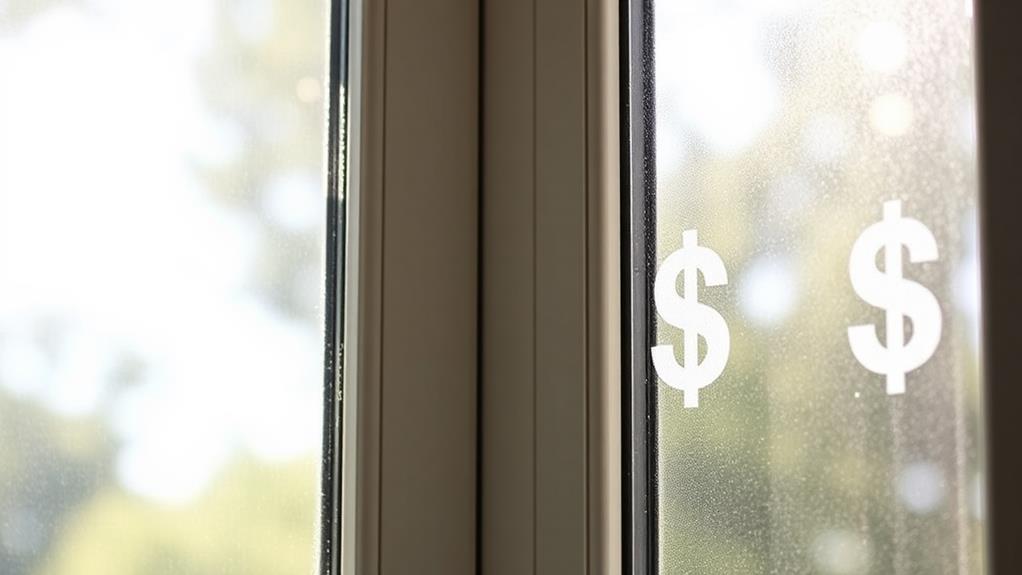
When considering an upgrade to your home's windows, it's crucial to weigh the costs against potential benefits. Double-pane windows are generally less expensive, with prices ranging from $300 to $850 per window, including installation.
Triple-pane windows, on the other hand, can cost 10-15% more, typically ranging from $400 to $950 per window.
While the upfront cost of triple-pane windows is higher, you'll need to factor in long-term savings on energy bills. Depending on your climate and current window efficiency, triple-pane windows can save you 2-3% more on energy costs compared to double-pane windows. This means it may take several years to recoup the additional investment.
Consider your home's location and your long-term plans. If you live in an area with extreme temperatures or plan to stay in your home for many years, triple-pane windows might be worth the extra cost. However, if you're in a moderate climate or planning to sell soon, double-pane windows could be the more cost-effective choice. Don't forget to factor in potential increases in your home's value and improved comfort when making your decision.
Noise Reduction Capabilities
Soundproofing capabilities are a significant factor when choosing between double-pane and triple-pane windows. If you live in a noisy area or value a quieter indoor environment, you'll want to consider how each option performs in reducing external noise.
Double-pane windows offer a noticeable improvement in noise reduction compared to single-pane windows. The two panes of glass, separated by an air or gas-filled space, create a barrier that absorbs some sound waves.
However, triple-pane windows take this a step further. With an additional pane of glass and another insulating layer, triple-pane windows provide superior noise reduction. They can block up to 50% more noise than double-pane windows, making them an excellent choice for homes near busy streets, airports, or other noisy areas.
It's important to note that the effectiveness of noise reduction also depends on the quality of installation and the window frame material. Properly installed windows with high-quality frames will perform better in soundproofing, regardless of whether they're double or triple-pane. If noise reduction is a top priority for you, triple-pane windows are generally the better choice, but they come at a higher cost.
Climate Considerations
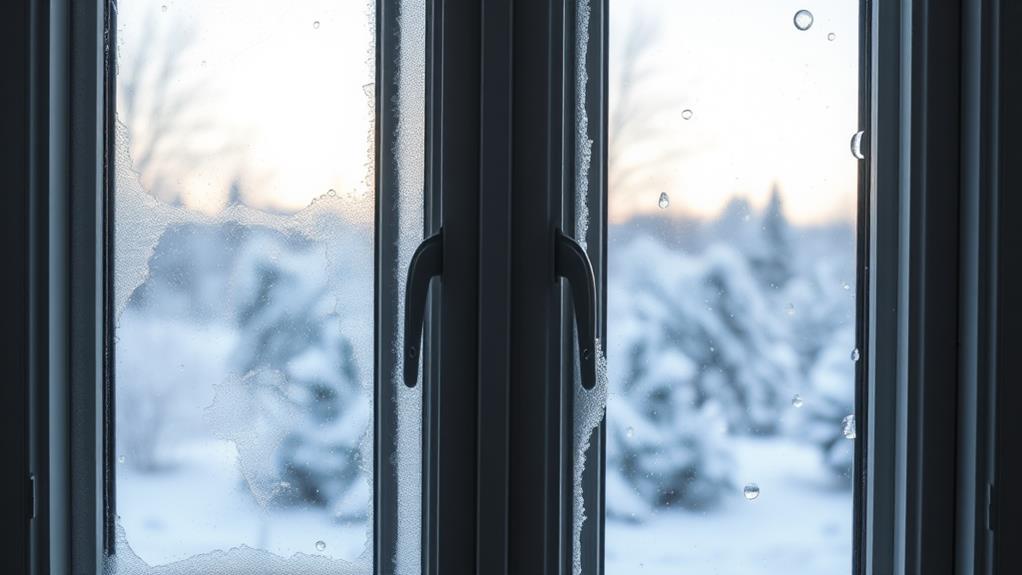
While noise reduction is important, your local climate plays a key role in determining whether double-pane or triple-pane windows are the best choice for your home. In colder regions with harsh winters, triple-pane windows offer superior insulation, reducing heat loss and keeping your home warmer. They're particularly beneficial if you live in areas with temperatures that frequently drop below freezing or experience long, severe winters.
On the other hand, if you reside in a moderate climate with mild winters, double-pane windows may suffice. They provide adequate insulation for most temperate regions and can still offer significant energy savings compared to single-pane windows.
In hot climates, both double and triple-pane windows can help keep your home cooler by reducing heat gain, but the extra insulation of triple-pane windows may not justify the additional cost.
Consider your heating and cooling needs throughout the year. If you're in an area with extreme temperature fluctuations, triple-pane windows might be worth the investment. They'll help maintain a more consistent indoor temperature, potentially lowering your energy bills and increasing your overall comfort.
Installation and Maintenance
Installing and maintaining your windows properly is crucial, regardless of whether you choose double-pane or triple-pane options. Both types require professional installation to ensure optimal performance and energy efficiency.
Double-pane windows are generally easier and quicker to install due to their lighter weight and simpler construction. Triple-pane windows, being heavier and more complex, may require additional time and expertise during installation.
When it comes to maintenance, both window types need regular cleaning and inspection. You'll want to clean the glass surfaces and check the seals periodically to prevent air leaks. Triple-pane windows might require more careful handling during cleaning due to their additional weight. If condensation appears between the panes, it's a sign that the seal has failed, and you'll need to replace the entire window unit.
For both types, you should inspect the frame and weatherstripping annually, replacing any worn or damaged components. Triple-pane windows may have a longer lifespan due to their increased durability, but they can be more expensive to replace if damaged. Overall, while triple-pane windows might require slightly more attention during installation and cleaning, the maintenance routines for both types are similar and essential for preserving their energy-saving benefits.
Aesthetic Impact
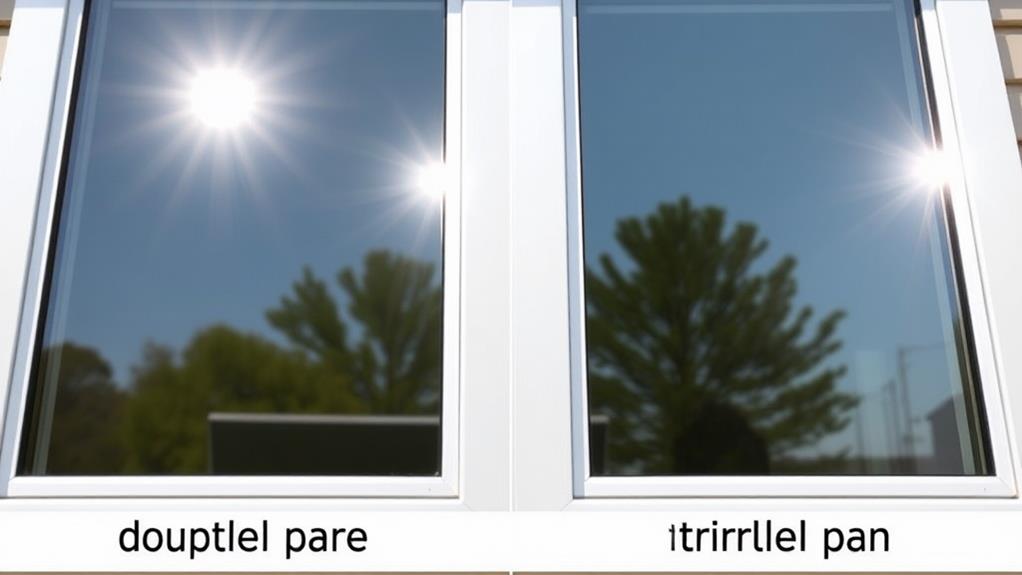
The aesthetic impact of your windows can significantly influence your home's overall appearance and value. When comparing double-pane and triple-pane windows, you'll notice subtle differences in their visual appeal.
Double-pane windows typically have a slimmer profile, which can create a more streamlined look for your home's exterior. They're often preferred in traditional or historic homes where maintaining the original architectural style is crucial.
Triple-pane windows, on the other hand, have a slightly thicker frame to accommodate the additional glass pane. While this may be noticeable upon close inspection, it's generally not a significant concern for most homeowners. The extra thickness can actually contribute to a more substantial, high-end appearance that some find appealing.
Both types of windows are available in various styles, colors, and finishes, allowing you to customize their look to complement your home's aesthetic. You'll find options ranging from classic wood frames to modern vinyl or aluminum.
Remember that the glass itself can impact aesthetics, with triple-pane windows sometimes having a slightly darker tint due to the additional layer. Ultimately, the choice between double-pane and triple-pane windows shouldn't significantly compromise your home's visual appeal.
Long-Term Return on Investment
Evaluating the long-term return on investment (ROI) for double-pane and triple-pane windows involves considering several factors. Initial costs play a significant role, with triple-pane windows typically being 10-15% more expensive than double-pane options. However, the increased energy efficiency of triple-pane windows can lead to greater savings over time.
To calculate your potential ROI, you'll need to consider your local climate, energy costs, and how long you plan to stay in your home. In colder regions, triple-pane windows often provide a faster ROI due to their superior insulation properties. They can reduce your heating costs by up to 50% compared to single-pane windows, while double-pane windows offer savings of about 30%.
The lifespan of the windows also affects ROI. Both double-pane and triple-pane windows can last 20-25 years with proper maintenance. However, triple-pane windows may offer better long-term value due to their enhanced durability and noise reduction capabilities. Additionally, energy-efficient windows can increase your home's resale value, potentially offering a higher ROI if you decide to sell your property in the future.
Conclusion
You've got a lot to consider when choosing between double-pane and triple-pane windows. While triple-pane offers superior insulation and noise reduction, it comes at a higher cost. Your climate and budget will largely determine the best choice. Interestingly, triple-pane windows can reduce heat loss by up to 50% compared to double-pane, potentially saving you hundreds on energy bills annually. Weigh the long-term benefits against upfront costs to make the right decision for your home.
